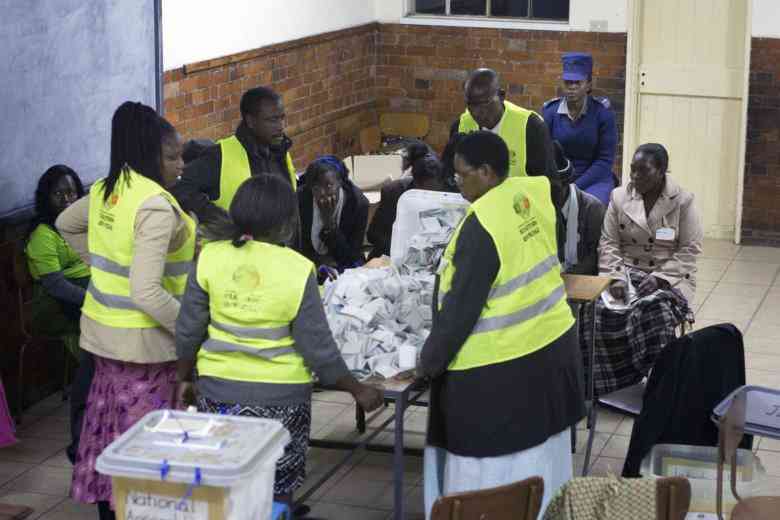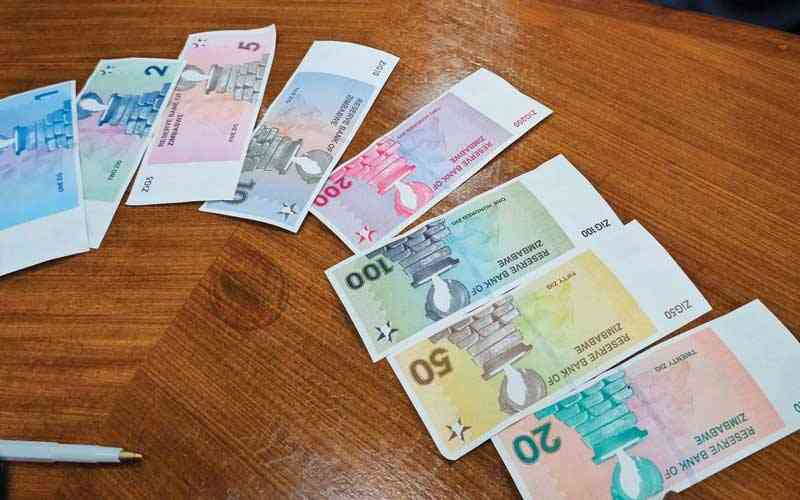
LAST month’s ‘disputed’ polls have dented Zimbabwe’s plan to mend strained relations with western powers, political and international relations experts said this week, warning the country’s debt clearance strategy could also be under threat.
Under pressure from Western sanctions imposed following a drumbeat of worldwide anger over alleged human rights violations — which have seen the country struggling to access fresh lines of credit — Zimbabwe has struggled to introduce political and economic reforms required to end its multifaceted crises and isolation.
Following the ouster of long-time ruler, the late Robert Mugabe in a 2017 coup, President Emmerson Mnangagwa’s then new administration held an election within eight months.
But it attracted worldwide condemnation after the shooting of unarmed citizens by soldiers, two days after polling on August 1 2018. Six people were killed and several others injured. The main contesting opposition party, MDC Alliance, led by Nelson Chamisa challenged the presidential result in the courts and lost. Mnangagwa had a chance to reset frosty relations with the west and global lenders in last month’s polls, which ended with his re-election for a second five-year term.
However, even after the polls were relatively peaceful, local and international observer missions slammed the Zimbabwe Electoral Commission (Zec) for failing to adhere to internationally accepted standards.
Experts say this was likely to further frustrate Zimbabwe’s efforts to end 23 years of isolation.
The Southern African Development Community (Sadc) Election Observer Mission was brutal in its criticism of Zec, as it diverted from its tradition of rubber-stamping disputed electoral outcomes in the region.
The mission, led by Zambia’s former vice president Nevers Mumba, blamed Zec for what it called favouritism towards the ruling Zanu PF party, especially during a pre-election delimitation exercise.
- Mr President, you missed the opportunity to be the veritable voice of conscience
- ED to commission new-look border post
- Zanu PF ready for congress
- EU slams Zim over delayed reforms
Keep Reading
Logistical gridlocks in opposition urban strongholds were also cited by the Mumba-led mission for spoiling Zimbabwe’s polls.
“Before election day, Zec had assured our mission and other stakeholders that all necessary voting materials, including ballot papers, were available and ready for use before election day,” reads the mission’s preliminary report.
“This communication was made in the context of section 52A (2) of the Electoral Act, which requires Zec to provide information on the number of ballot papers and publication of details regarding them.
“Based on these two considerations, the subsequent information from Zec that they did not have adequate ballot papers has the unfortunate effect of creating doubts about the credibility of this electoral process.”
Mnangagwa, inaugurated on Monday at an event attended by a few regional leaders, polled 52,6% of the vote while his closest rival Chamisa of the Citizens Coalition for Change (CCC) managed 44%.
Leader of the Movement for Democratic Change Douglas Mwonzora withdrew his presidential bid days before the polls, describing them as ‘a farce’.
Other observer missions like those from the African Union, the Commonwealth and the European Union also cast aspersions over the ‘flawed’ elections. United Nations secretary general Antonio Guterres also raised the red flag, citing reports of violence and arrests of civic society activists.
Political analyst Rejoice Ngwenya noted that Zimbabwe’s poor record of election management, characterised by intimidation and rigging claims, scuppers chances to end isolation. Under the re-engagement plan, Mnangagwa has prioritised re-joining the Commonwealth among his most important assignments.
“The matter of re-engagement is put back in the freezer,” Ngwenya said.
“If conditions of re-engagement were tied to conditions under which sanctions were imposed, no re-engagement can even be considered. Thus, the government's efforts to re-engage are acts in futility, still-born, moribund,” Ngwenya told the Zimbabwe Independent.
In his inauguration speech, Mnangagwa struck a defiant tone, telling those who criticised last month’s polls to respect Zimbabwe’s sovereignty.
But critics questioned his government’s sincerity in implementing sweeping reforms and lift Zimbabwe out of a pool of nations seen as rogue. His failure to implement recommendations of the 2018 Kgalema Motlanthe Commission has often been cited as an example of Zimbabwe’s unwillingness to reform. The commission was set up to investigate fatal shootings of civilians by state security agents after the July 30 2018 elections.
Another political analyst Vivid Gwede said this year’s polls stalled Zimbabwe’s efforts to re-join the international community, which is seen as a crucial step in addressing its intractable economic crisis.
“The elections were an important event in determining how Zimbabwe will engage with the international community,” Gwede said.
“Unfortunately, the election is sparking another legitimacy debate. The sentiment from observer missions is that Zimbabwe still needs to implement political reform. The elections were probably a missed opportunity to do so.”
The west, primarily the United States, has explicitly stated, under the Zimbabwe Economic and Democracy Recovery Act (Zidera), that it will only scrap the global embargo if Harare restores the rule of law, among other conditions.
However, since 2003, when the US Congress passed Zidera, a legislation that has raised the ire of several African leaders, Zimbabwe has remained incorrigible, thereby shutting the window of opportunity to repair battered relations.






